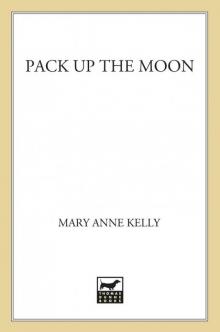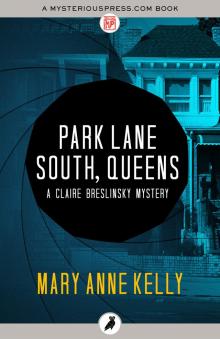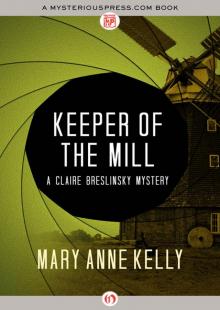- Home
- Mary Anne Kelly
Pack Up the Moon Page 7
Pack Up the Moon Read online
Page 7
“Safari?” Not a year ago I’d been a mere senior in a Catholic high school. Safari sounded just the thing. No need to convince me. There would be excitement. Experience. The eyes of tigers. “I’d love to go.” I nodded excitedly.
Oh, boy. A trip like this was big. Really big. I went outside to catch the trolley back to Schwabing. There was a pay phone at the tram stop. With my resigned New York skepticism, I put in my coins and was surprised when it worked. I called the only number I knew, my agency. The girl on the other end was very excited. Reiner Decke had just booked me for two weeks’ catalog in the Canary Islands! I lit an HB cigarette and sucked it in. How much was I going to make? Wow.
Only a few days later I was on a charter flight to Tenerife. I had my newly purchased, slumpy burlap bag and my extra carton of cigarettes. I sat alone on the plane, my head filled with dreams. I wondered what I would do when I saw my first tiger. Would I be up to it or go numb with fear? There was no question of charcoals. Wild animals came and went like a flash. I would photograph it and draw later. What film would I use? I checked my camera battery.
Everyone spoke German, of course. I didn’t mind. Anyway, all the other models were old. If not old, too old for me. They were cool and never looked my way. Now I know that they were afraid of me. But I hadn’t known that then. They could hardly speak a word of English and they probably thought I was pushing them out. Quite a few times I would overhear them saying, “Ausländer.” They said it so often, and with such specific disdain, I was beginning to wonder what it meant.
I remembered the first night there very well because that was the first inkling I’d had things weren’t going to be all hunky-dory. We’d all sat down to an elaborate dinner. I was still a little aghast at the high-rise hotel. I’d imagined native huts on stilts. What with Reiner’s Ronald Coleman attire there had been nothing else to think. He wore his many-pocketed vest and bush hat like a daring trooper, his elbows out, his cameras at the ready. Reiner spent a great deal of time admiring, in English (and so for my benefit), one of the other models. “Just look at Helga. She’s the picture of a ballerina, or?” he kept urging. “Yes,” I must have agreed ten times. Although I must admit, I’d found her too remote and brittle for my taste. And too tall for any ballerina I had ever seen.
“Just look at the way she eats,” he approved, “like a little bird.”
While I, on the other hand, shoveled in like an old farmhand whatever I could get my greedy hands on. Was that what he was implying? But I wasn’t one to take offense. It was for just this sort of information I had come to Europe. I tried to eat a little more slowly and delicately.
“Americans,” Reiner pointed out, “have absolutely no culture. And their homes,” his expression withered, “are pure kitsch!” Without waiting for a reply to this, he went back to speaking German from the head of his long banquet table. These were his well-done sides of beef, his attitude implied, his paella, and his models, assistant, and one radiant, miniature client.
Uncomfortable, I patted my mouth with my napkin. And just when was this safari about to begin? I wondered. It was more like Spain than Africa. The whole setup was suspiciously touristy. Even I gave the room a sweep, like a little low-end Atlantic City.
There were some English. A bevy of retired Liverpudlians. They sat politely at their assigned places eating shiny shrimp and drinking umbrella gins. Enjoying the flamenco dancers on the portable stage. Taking it all in. They looked nice, I thought, sunburned and convivial. I was, however, loudly discouraged from making contact with any of them. Reiner reeled me back in the minute I would strike up a conversation with anyone. “We need not associate with working-class foreigners,” he advised me. “Or?”
“And just what class do you think I am?” I spoke up boldly.
“There has never been the slightest doubt as to which class you belong,” he snorted.
So it was to be a disgruntling two weeks.
Reiner Decke was mean because he was vain. What he’d wanted was my admiration and I withheld it simply because I had none. I embraced this refusal tightly in my clenched, hurt feelings.
Day after day, the front desk rang up before dawn and we girls staggered to the Range Rover bus. Up the landscape we would climb, Styrofoam cups of delicious coffee warming our hands.
I was directed to the rear of the bus. I honestly didn’t know any better than to do as I was told. It was all so much like school. Here I was, in trouble again. Only instead of aggravated nuns, I now had Reiner Decke.
He was angry at me because I turned out to be so short. I had misrepresented myself, he said, wearing my platform shoes. They would have to prop me up on three telephone books. Big deal, I thought. I didn’t see why we couldn’t all just adjust. My latest offense was that I had no accessories with me. Who knew? Where I’d come from there were stylists and makeup people, I harrumphed to myself.
The other models were induced to grudgingly come up with hair falls and scarves and jewelry for me. They would hand over such items with distaste. The one named Helga had an entire suitcase just for ribbons in every color. She hated to give me her precious ribbons but my hair kept blowing in front of my face and Reiner insisted I use them to hold back my unruly mane. I learned to return each item swiftly. The owner would take it back as though she were receiving something unctuous, like snails, because, I supposed, it had come into contact with me.
So there I was with Helga and Werma and Unke and Uli, six-foot-something women, while I perched on my Tenerife telephone books.
Only the model called Helga spoke some English. Unavoidably I learned a couple of German words. Things they’d say over and over, separate from complete sentences. “Wirklich?” (Really?) “Genau!” (Exactly!) “Scheisse!” (Shit!) Never to me. No one ever spoke to me. But occasionally, Reiner would shout at me, “You are too short!” or “I don’t understand! You presented yourself as such a professional! Where is your fingernail polish?! You are being paid for this, or?”
There was a clerk who sat at the greasy reception desk at the hotel. “What does the word ‘Ausländer’ mean?” I asked him on my way out the door.
He looked up from his Spanish true crime soft cover. “Foreigner,” he told me.
Yes, I knew Reiner Decke. I gave my hair one last long rinse and climbed from the tub.
chapter six
It was eight o’clock. I had donned one of the pretty dirndls that hung like spare girls in Isolde’s wardrobe. You couldn’t wear a bra with the senorita blouse that went with it but it didn’t matter. No one wore a bra back then. Just wait till they get a load of me in this, I thought as I shut the door to my knotty-pine apartment and tiptoed through. Someone was tromping up the stairs. An unfamiliar voice I felt I recognized. I stood very still and listened. Someone important, I thought. I stood behind the nanny’s green door and watched through the new moon sliver of stained glass. Although I didn’t know it then, this would be the night when everything would change and my life would launch off in another direction.
Dr. Blacky von Osterwald huffed his irritated way up, up the tedious staircase one step at a time. I caught my breath. It was the man I’d seen that time six months ago at the airport in Milan!
So this was Blacky. He was angry, I could see that. And unhappy.
Blacky was a medium-sized man with an open, clear-skinned face. He was good-looking, all right. His eyes were wide-set jellies of green but the whole effect was nothing dramatically devastating until you came to the hair. Great trundles of pure black hilarity that even his brittle comb would find it difficult to tame. He would pretend to be annoyed when anyone mentioned it, as most people eventually would, but women loved it and he knew they did. You could see the women who had loved him on his face. You could see them in the way he stood, sure and aggravated. His mother, his lovers. Girls who watched him from afar. He was too restrained to swagger, but the impetus was there. I held my neck, admiring any woman who could keep him. Wishing, for the second time, it was me.
Ou
t on the landing, Harry Honeycutt sat across at the top of the stair alongside Rupert. Together they petted Rupert’s cat.
“I have yet to climb this thing without cursing Isolde,” Blacky panted from below. “How can she continue to live on a mountaintop? She doesn’t need it now that Vladimir’s gone. It’s a sculptor’s loft, not a fit home for them. She certainly has the means to move.”
“Yes,” agreed Harry. “Although one would never find rambling, enormous rooms like these in a modern building with a lift. Nor a window with a view as magnificent.”
Blacky paused for a breather at the second-floor landing. “I suspect I ought to give up smoking,” he said. “And drinking.” He frowned. “We all drink too much.” He carried a bouquet of white freesia with lily of the valley and a good Würzburger-Franken wine. I’d never been in love. Oh, I’d had my share of successes on the open field. But that just had been a series of wins and near misses. Like sport. I suddenly felt that where he was was where I wanted to be. I could just be near him and the air would be enchanted. I didn’t even have to be near him. Just to know that he existed. That he lived. It wasn’t like they said, time stands still. It quickened. Heightened. Glistened. I didn’t need to talk with him. God, I think I wouldn’t have known what to say. And he was cruel, yes. You could see that right away. But there was something bountiful about him, too. Measured. Discerning. I opened the door a whisper to hear them better.
Harry was saying, “You’ll make us all look bad, never arriving empty-handed. What year is that?”
Blacky held up his bottle of Franken wine. “Seventy-one.”
“Oh! I’m impressed. You must be infatuated.”
“We got that business over with some years ago,” he protested easily with a laugh, “and have settled into a comfortable and more convenient understanding. No, I’m simply very well brought up.”
Harry, very well brought up himself, said, “Yes, Isolde likes having you because you’re an aristocrat, there’s no denying that. A count, in fact, isn’t it?” His voice betrayed real bitterness. “Although she will always pretend that has no influence on her.”
Blacky stopped to catch his breath. “It’s because I am single, charming, and, once you get me stewed, a lively conversationalist.”
Not only that, I confirmed from my covey of secrecy, but I would bet he knew what he was doing when it came to women.
“No, really, I hate this,” Blacky complained, “too many flights. But where else in Munich would one find a table as sumptuous as Isolde’s? And,” he added, “where one could at the same time flex one’s English; where one might and often does meet one pretty boarder after the next.”
Harry said, “Wait till you see the one she’s got here now.”
My breath stopped.
“I don’t care to meet her,” he went on. “What a flippant little baggage she is! When I telephoned, she took it upon herself to correct my pronunciation, as if an American dare correct anyone’s English! American women really are distasteful. Acidic. Isolde ought to go back to renting out to the Swedish girls. No irritating, superior attitudes. Just hupla into bed and gone before you wake. Americans put so much stock into ‘meaningful’ relationships. Well. One knows where that leads.”
“Yes.” Harry feathered Puss’s head.
“The men I know enough about from the year I spent as a volunteer medic in Vietnam.”
“Yes.” Harry stifled a yawn. “We’ve all heard how you went to Vietnam. Several times, I think.”
“Uneducated buggers,” Blacky, ignoring this, went on, “forever destroying perfectly decent scotch with horrid jolts of Coca-Cola.” He’d reached the top. “Do something with these, will you?” He dropped his soft bouquet onto Harry and strolled inside.
The party was a glimmering affair, candlelit and charming, the way only Isolde could do it. All old models know how to do lighting, but some are better at it than others. She had the knack, all right. The room was warm and glowy. I waited until they were all seated, took a deep breath, and went in. I felt Blacky’s eyes sweep me up and down and a thrill rushed through me. I trembled to my seat. His eyes, taken, followed me.
“Ah,” said Isolde, watching, “you haven’t met our Claire.”
“From America,” Harry just had to add.
He liked that. I could see the spot behind Blacky’s eyes reach toward me.
“Hello,” I said.
His eyes met mine.
I was sure his lit up.
But then—what was this?—at exactly the wrong moment, Tupelo Honig swept into the room. The actress was a voluptuous vision of flowing beige and loose chiffon.
All the men stood up at once. Tupelo Honig, however, had eyes for no one but Blacky. She moved provocatively toward him. Her cheekbones popped up like prizes and the edges of her glossy mouth went up and down in almost comical sensual allure. Her fingernails were delicate and filed into fancy sherberty ovals. She wore green pearls. I’d never seen green pearls before. Not real ones. They shone with an uncanny phosphorescence. They were dark yet light at the same time. Blacky reached across the table and took her hand. He pulled it to him and kissed it.
I was crushed.
It would have been very hard not to be captivated, I’ll give her that. I’d assumed she’d be older from all the films I’d heard she’d done. If she was, it didn’t show.
Everyone in the room leaned unwittingly toward her. Even as she stood there presenting herself, she moved like pudding, with no discernible bones. Her hairdresser must have sprinkled her head with glitter because as she went in in her fluid, captivating way, the candlelight seemed to shine out from her. Here was a woman who knew how to make an entrance. She was one of those dark blondes, with nutmeg eyes and dark brows, but hair that lightened into the color of corn-husk silk as it grew to its luxurious, uneven lengths. Her waist and ribs were preposterously small and her shoulders and breasts were, by contrast, big creamy things a man would love to touch. It wasn’t fair. Any thoughts I’d had of actually “getting” Blacky evaporated at the moment I saw his expression change from amused for me to rapt for her.
“Liebling, I said Trachten!” Isolde chastised her. But she wasn’t angry. She was thrilled just to have her famousness in the house.
“You must forgive me,” Tupelo beseeched us all. “I’ve just come from such a grueling rehearsal at the theater.”
She said this as one would say “such a grueling time at the supermarket,” and we all obediently gazed at her with sympathy.
Blacky still looked at her with something else. I’d known jealousy before, but this was something new. He might have wanted me for that one quick moment but her, with all that sexual allure … he wanted her for keeps. And Blacky was impressed by other things. What chance would I have against fame and fortune?
“Don’t fuss for me, now, darlings, I beseech you!” Tupelo smiled sweetly at everyone. All the men were standing, tipped forward toward her. “My needs are so simple. I only eat raw foods, you know. High-energy foods. Or carrot juice. I love my carrot juice.”
From here things only got worse. Isolde asked me if I wouldn’t mind scooting one seat down so we could have boy girl, boy girl. I don’t turn red in an attractive, virginal blush. My nose and ears become bright dots. I felt suddenly scrawny and ridiculous in my dirndl.
Isolde introduced Tupelo to me.
“Ah.” She took my hand, purring, “Named for Claire of the poor Claires!” showing off her knowledge of America.
“No, actually,” I stared right back, “named for the song ‘Claire de Lune.’” But she’d already turned her back.
Then Reiner Decke, that awful photographer, arrived in a loden cape. I never would have thought I would be glad to see that man. But I was. I was glad for anyone who would change the dense, oozy tone of that room to something less seductive, even if it was to Reiner’s unpleasant cockiness. He had somehow assembled his trickle of hairs into a tail at the back of his head. It made him look like a degenerate rock star from
Peru, I thought. And in all my life I have never seen a larger, more sparkling watch on a wrist.
Wolfgang Scherer, the filmmaker, arrived. Well, he appeared suddenly more than arrived. One moment he wasn’t there and the next he was. He was a little man, soundless, with a long trunk and short legs, his eyes very blue and sharp. He had outstanding, listening ears low on his head. He wore a flimsy neck scarf like an adolescent boy would at a dress-up, looking just the way you would imagine a filmmaker should look. He had well-formed shoulders and very frail little arms, almost childlike, but quick, high-arched feet that he tended to kick in the air as he moved like a kung fu artist, or a man with a fever. He must have had a horrible childhood, I remember thinking. He wasn’t pleasant to look at—and however much you tried to look at him from different angles, you couldn’t find a good view. Despite this, you continued to look because there was something captivating. He had a wonderful deep, full-throttle voice when he at last spoke and eyes that—no, it wasn’t that they twinkled. They didn’t twinkle, they glowed. Yes, there was something wonderfully hidden and compelling about him.
I tried to appear as though I were enjoying myself and, in a way, after a while and a few glasses of white wine, I thought I was. After all, I told myself, this was just what I’d always wanted: to be hooked up with aristocratic and decadent film people. This cavalier set were perfect for my needs. Wasn’t I determined to live a detached life, dedicated only to fundamental art and beauty? There was no room for such foolishness as falling in love. I told myself I felt much better. And I had my loathing of Reiner to keep me company. Reiner was in raptures to find himself dining with the famous Wolfgang Scherer and the actress Tupelo Honig. And when he was introduced to me, he acted as though we were old buddies. “Of course I know the little Breslinsky!” He dismissed me by never really looking at me. “We were together on safari!” His beady eyes twinkled from guest to well-heeled guest. The little Breslinsky? How demeaning. And again with the safari. There was nothing for me to do but smile.

 Foxglove
Foxglove Jenny Rose
Jenny Rose Pack Up the Moon
Pack Up the Moon Park Lane South, Queens
Park Lane South, Queens Keeper of the Mill
Keeper of the Mill Twillyweed
Twillyweed